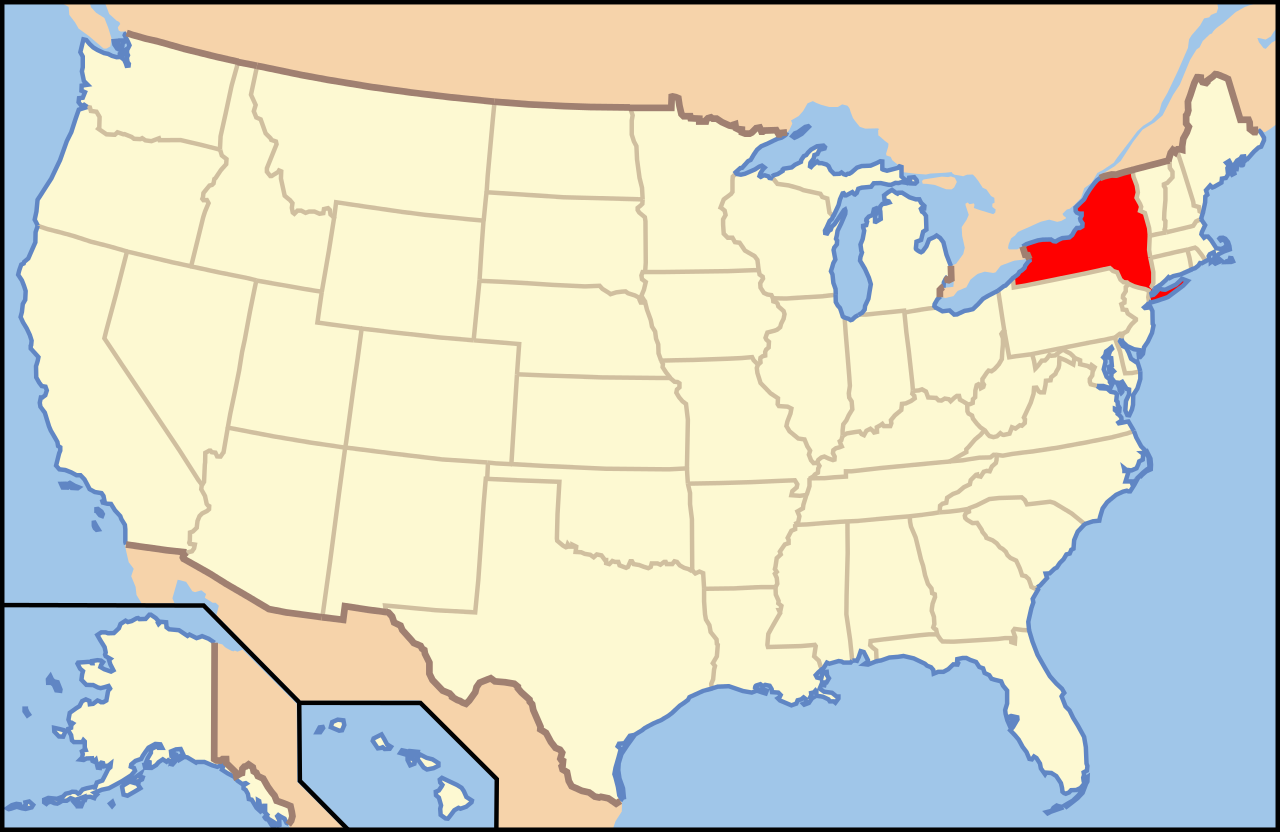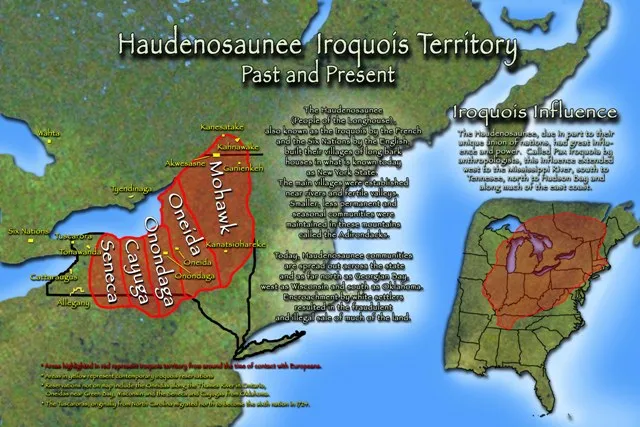More languages
More actions
- Not to be confused with New York City
New York 
Capital Albany Largest city New York City Common languages English 69.6%
Spanish 15.2%
Chinese 3.1%
Tagalog 2.5%
French 1.6%
Russian 1.2%
Italian 0.9%
Yiddish 0.7%
Hindi/Urdu 0.6%
Arabic 0.5%
Korean 0.5%Demonym(s) New Yorker Leaders • GovernorKathy Hochul • Lieutenant GovernorAntonio Delgado • US SenatorChuck Schumer • US SenatorKirsten Gillibrand Area • Total141,297 km² • Land122,057 km² • Water19,240 km² Population • Estimate2021 (20,215,751) Labour • Unemployment rate4.2% (403,000) Website
https://www.ny.gov
The State of New York is located in the northeastern region of the United States and is the fourth most populous state in the country. It is known for its diverse population, cultural landmarks, and economic power.New York City, the state's largest city and the financial capital of the United States, is home to Wall Street and the headquarters of many major corporations. As a result, New York has a significant influence on the national and global economy. However, this concentration of wealth and power in the hands of a few individuals and corporations is a prime example of the capitalist system at work.[1]
New York State also has a long history of labor struggles and unionization, particularly in the manufacturing and service industries. The state was a major center of the labor movement in the late 19th and early 20th centuries, and it continues to be a major center of organized labor today. This is a reflection of the class struggle between the working class and the capitalist class.[2]
New York State also has a diverse population, with significant numbers of African Americans, Latinos, Asian Americans, and immigrants from all over the world. Immigrants, particularly those who are undocumented or working in low-skilled (according to capitalists) jobs, are often paid less than their colonial counterparts. This is a reflection of the process of globalisation and the exploitation of people of color by capitalist economies.[3]
Despite its economic power, New York State also has significant poverty and inequality. This is particularly true in urban areas like New York City, where the divide between the wealthy and the working class is stark. This is a reflection of the capitalist system's tendency to create and perpetuate poverty and inequality.[4]
History[edit | edit source]
Dutch colonialism[edit | edit source]

Map of the Five Nations of the Haudenosaunee When the Dutch were forced to cede their colony of New Netherland to the English, 20% of its population consisted of Africans, mostly slaves.[5]
British colonialism[edit | edit source]
In 1741, two slaves in New York City were executed for arson after a fire started. Their owner admitted that they were not responsible for the fire.[6]
References[edit | edit source]
- ↑ Harvey, D. (2005). A Brief History of Neoliberalism. New York: Oxford University Press.
- ↑ Klein, N. (2007). The Shock Doctrine: The Rise of Disaster Capitalism. New York: Metropolitan Books.
- ↑ Wilkerson, I. (2020). Caste: The Origins of Our Discontents. New York: Random House.
- ↑ Piketty, T. (2014). Capital in the Twenty-First Century. Cambridge: Harvard University Press.
- ↑ Domenico Losurdo (2011). Liberalism: A Counter-History: 'What Is Liberalism?' (pp. 15–16). [PDF] Verso. ISBN 9781844676934 [LG]
- ↑ Domenico Losurdo (2011). Liberalism: A Counter-History: 'Were Eighteenth and Nineteenth Century England and America Liberal?' (p. 100). [PDF] Verso. ISBN 9781844676934 [LG]


